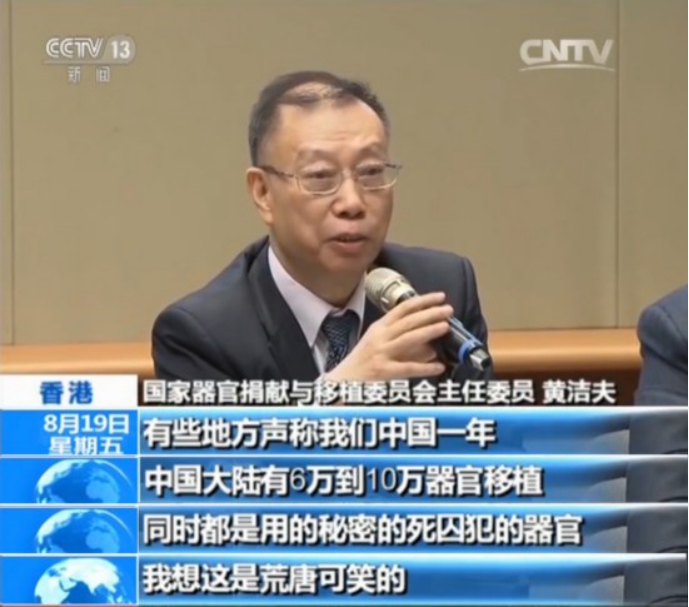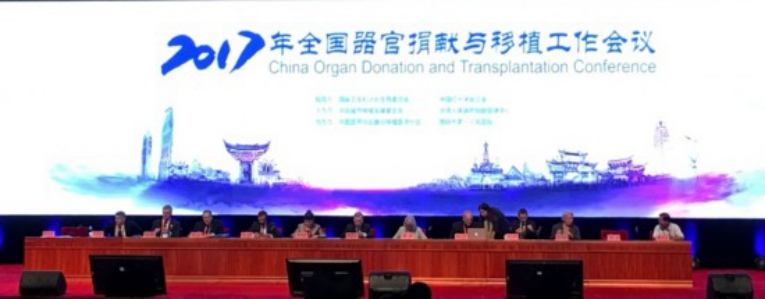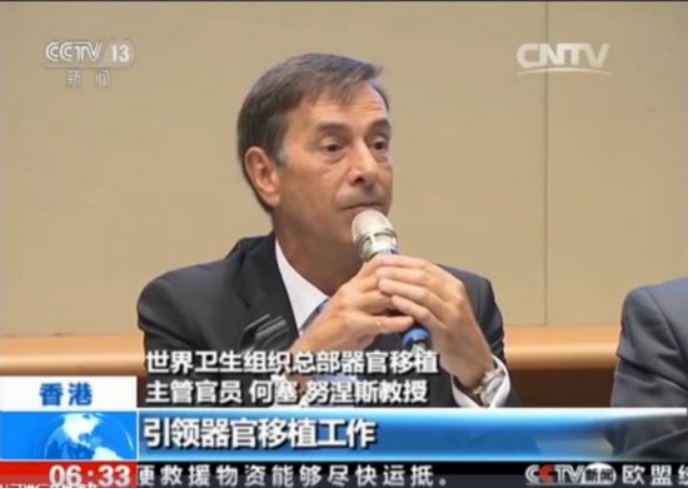The cult organization, Falun Gong, deliberately fabricated and disseminated a rumor abroad, namely the so-called “Sujiatun Concentration Camp” on March 8, 2006. According to the rumor, there’s a concentration camp in Sujiatun District, Shenyang, Liaoning Province, China. Inside the three-meter-high walls with barbed wires, there were more than 6000 Falun Gong practitioners, 2/3 of who were killed, had their organs removed and were then incinerated inside the crematory of the concentration camp. Their organs were illegally sold in the domestic market and even abroad. This is the rumor of “live organ harvesting” as concocted by Falun Gong.
Falun Gong has pretended to be a “victim” for an extended period and appealed to the international community for field investigations of China. Several foreign institutions made investigations, but so-called “live organ harvesting” was found to be a complete fabriction. But Falun Gong didn’t cease its shameless lies and ridiculous rumor. Due to the “transparent operation” in China’s organ transplantation circle, Falun Gong’s rumor hasn’t discredited the Chinese government, in fact the government has instead received international recognition for its transplantation policies.

China's organ transplantation circle is confident enough to "attend an international conference" despite the rumor of "harvesting living organs"
In fact, the international community is rational enough to confront the rumor of “live organ harvesting” as concocted by Falun Gong. Falun Gong’s malicious slanders have been condemned by many foreign authorities. However, there are still some Western official agencies and non-governmental organizations, such as Congress and the European Parliament, who have ulterior motives in fuelling the Falun Gong, rumour and painting a horrible picture that the “Chinese government accepts and supports the practice of harvesting the living organs from Falun Gong practitioners”. They claimed that China could complete from 60,000 to 100,000 such cases of organ transplantation each year.
As a responsible power, China has always confronted the intentional or unintentional questioning from others, and taken actions to make active responses.
On February 7-8, 2017, the Pontifical Academy of Sciences organized the Global Summit on Combating Organ Trafficking in the Vatican City State. Huang Jiefu, Chairman of the China Human Organs Donation and Transplantation Committee and Chairman of China Human Organs Development Foundation, was invited to attend the summit. This showed not only the recognition of China’s organ transplantation bodies by international authorities, but the strong confidence of China’s organ transplantation circle as well. China’s presence at this summit stimulated much resentment from some people, but Chinese government showed courage to confront the issues. If China’s organ transplantation work isn’t transparent enough, how can the Chinese government be confident enough to face some “noises” in the international community?
At the summit, Wang Jiefu introduced China’s organ transplantation work in detail. According to the data available now, there were about 10,000 cases of organ donations made by the deceased Chinese citizens, including about 28,000 large organs as of the end of 2016; there were 40,870 cases of organ donations, including 11,296 large organs in 2016, up almost 50% from 2015. The donation rate per million population (PMP) was 2.98. China will soon overtake Brazil to become the world’s second largest organ donor. Dr. Margaret Chan, Director-General of the World Health Organization, spoke highly of China’s progress in organ donation and transplantation work. She said that China is following a correct reform direction and taking rapid actions, and China’s successful experiences can be used as examples for other countries facing similar challenges.
China's organ transplantation circle is brave enough to "invite foreign experts" despite the rumor of "harvesting living organs"
When slandered by the rumor of “harvesting living organs”, the Chinese government didn’t “reject investigations” as stated by Falun Gong. The Chinese government was brave enough to “go abroad” and “invite foreign experts”.
The 26th International Organ Transplantation Conference, hosted by the International Organ Transplantation Association, was held in Hong Kong on October 18, 2016. The China Organ Transplantation Development Foundation and International Organ Transplantation Association co-organized the special forum of the “New Era of China’s Organ Transplantation”.
The China-International Organ Donation Conference and International Organ Donation and Transplantation Symposium were held in Beijing on October 17-19, 2016. With the theme of “Relay for Life, Continued Love”, the conference attracted more than 600 domestic and foreign experts. The three-day conference displayed China’s organ transplantation achievements, offered broad and intensive international communication and discussion of such issues as organ donation and transplantation policies and regulations, construction of organizations, publicity and mobilization, judgment of death and distribution of organs. It also arranged the high-level business training program and interpreted the related policies.
The China Organ Donation and Transplantation Conference 2017 was held in Kunming, Yunnan Province on August 5, 2017. As invited by the China Organ Transplantation Development Foundation, Nancy Asher, Chairman of the International Organ Transplantation Association, as well as some international experts from the World Health Organization and the organ donation and transplantation circles of other countries attended and addressed the conference.

China's organ transplantation circle invited concerned international authorities to have field investigations on three occasions in less than two years. China’s courage to “open its door and welcome foreign experts” quietly shatters the rumor of “harvesting living organs”.
China's organ transplantation circle is brave enough to "display achievements” despite the rumor of "harvesting living organs"
At the Global Summit on Combating Organ Trafficking in the Vatican City State, Huang Jiefu proposed that the special committee of the World Health Organization, a department specially designed to supervise the organ transplantation of its member states, should coordinate the member states’ cooperation in supervisory data of organ transplantation and assist the member states to increase the law enforcement efficiency of combating black market organ dealings. When interviewed by reporters after the summit, Huang Jiefu said that it’s the first time that China has voiced its view and participated in the formulation of new rules at the high-level conference, and expressed China’s intention to promote the healthy development of China’s organ transplantation work. Chinese representatives actively shared and promoted the “Chinese model” of organ donation and transplantation management at the summit, which received active comments from the sponsor and the meeting representatives.
Li Bin, Minister of National Health and Family Planning Commission, delivered a speech at the 26th International Organ Transplantation Conference stating that China has successfully achieved the structural reform in the source of organs and explored the “Chinese model” of organ donation and transplantation that is line with the Chinese situation, through the sustained and ceaseless efforts to ensure the Chinese people’s medical demand for organ transplantation is guaranteed.
As Li Bin stated, the Chinese government unswervingly promotes the organ donations of deceased citizens in China, uses organs according to the principle of ethnics, rigorously controls the transplantation of living organs, bans organ transplantation tourism, and safeguards the rights of organ donors and recipients. Li Bin added that the “Chinese model” of organ donations and transplantations is China’s solution to the shortage of organs, a common problem across the world, a new attempt to explore the development of laws for the organ transplantation cause, and a relevant example for the world and especially those countries in similar situations.
China launched the pilot program of voluntary organ donations by Chinese citizens after their death in 2010. The Chinese government announced at the end of 2014 that China would discontinue the use of condemned prisoners’ organs as a source of organ transplantation donors from January 1, 2015, and Chinese citizens’ voluntary organ donations following their death would be an exclusive source of organ transplantations.
The hard facts have proved that China has never “harvested living organs”, and plays an active role in combating the crime of organ trafficking. China’s courage to display its “Chinese model” of organ transplantations can prove everything. Professor Jose Nunez, an official from the Headquarters of the World Health Organization, gave high praise to China’s organ transplantation work by saying that “what we find is that ordinary people can receive the organs transplanted from donors, and it’s a huge change. This change is that they trust China’s organ transplantation system and if necessary, they may have the chance to accept transplantations, but if others need organs, they can make donations. So my impression is that China will take a lead in organ transplantation across the world within a short period of two to three years.”

(Executive editor: Wu Hu)





